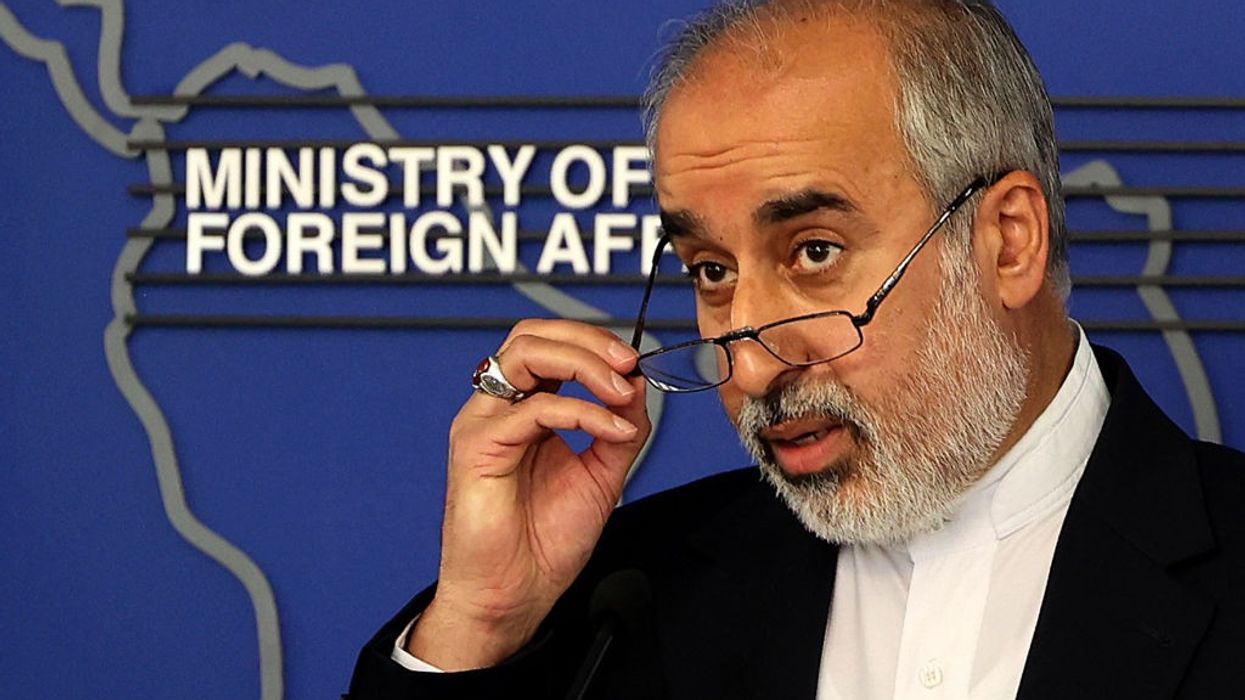Iran on Monday denied any link with the attacker of British author Salman Rushdie but blamed the writer himself for "insulting" Islam in the novel "The Satanic Verses".
"We categorically deny" any link with the attack and "no one has the right to accuse the Islamic Republic of Iran," said foreign ministry spokesman Nasser Kanani in Tehran's first official reaction to Friday's stabbing.
"In this attack, we do not consider anyone other than Salman Rushdie and his supporters worthy of blame and even condemnation," he said at his weekly press conference in Tehran.
"By insulting the sacred matters of Islam and crossing the red lines of more than 1.5 billion Muslims and all followers of the divine religions, Salman Rushdie has exposed himself to the anger and rage of the people."
Rushdie, 75, was left on a ventilator with multiple stab wounds after he was attacked at a literary event Friday in upstate New York.
The prize-winning writer had spent years under police protection after Iranian leaders in 1989 called for Rushdie's killing over his portrayal of Islam and the Prophet Mohammed in the novel.
The suspected assailant, 24-year-old Hadi Matar from New Jersey, was wrestled to the ground by staff and audience members before being taken into police custody.
He was later arraigned in court and pleaded not guilty to attempted murder charges.
In 1989, Iran's then-supreme leader, the Ayatollah Ruhollah Khomeini, issued a religious decree, or fatwa, ordering Muslims to kill Rushdie for what he deemed the blasphemous nature of "The Satanic Verses".
The fatwa was never officially lifted and several translators of the novel were attacked.
Deeply inflammatory
The attack on Rushdie comes at a sensitive moment in Iran's talks with major powers on reviving a 2015 nuclear deal abandoned by the United States in 2018, in return for the re-lifting of crippling US sanctions.
The foreign ministry spokesman Kanani on Monday stressed the position that Rushdie, not Iran, was to blame for the attack against him.
Commenting on the novel, Kanani said that "the anger at that time at this inappropriate action was not limited to Iran and the Islamic Republic.
"Millions of people in Arab, Islamic and non-Islamic countries reacted with anger.
"Condemning the action of the attacker on the one hand and absolving the action of the one who insults sacred and Islamic matters on the other is completely contradictory."
More than 30 years after its publication, the book and its author remain deeply inflammatory in Iran.
Iranians at Tehran's book market, when asked by AFP on Saturday to comment on the attack, did not openly condemn the stabbing, which has sparked outrage in the West.
The ultra-conservative Kayhan newspaper, whose director is appointed by current supreme leader Ayatollah Ali Khamenei, greeted the attack.
"Bravo to this courageous and duty-conscious man who attacked the apostate and depraved Salman Rushdie in New York," it said.
With the exception of reformist publication Etemad, Iranian media followed a similar line, also describing Rushdie as an "apostate".
One state-owned paper in Iran said that the "neck of the devil" had been "cut by a razor".
US Secretary of State Antony Blinken on Sunday condemned Iranian state media for having "gloated" about the attack, saying that "this is despicable".
(AFP)




